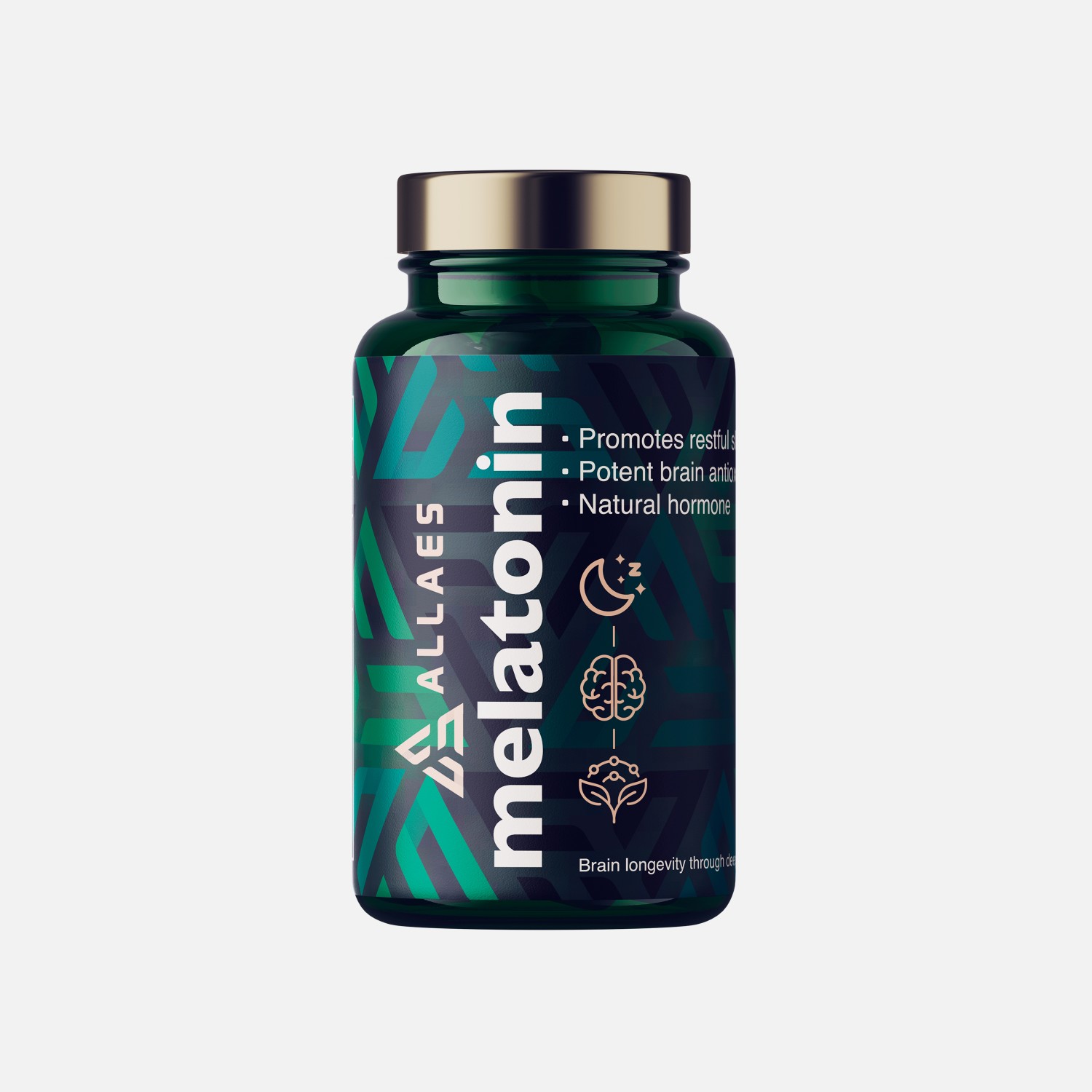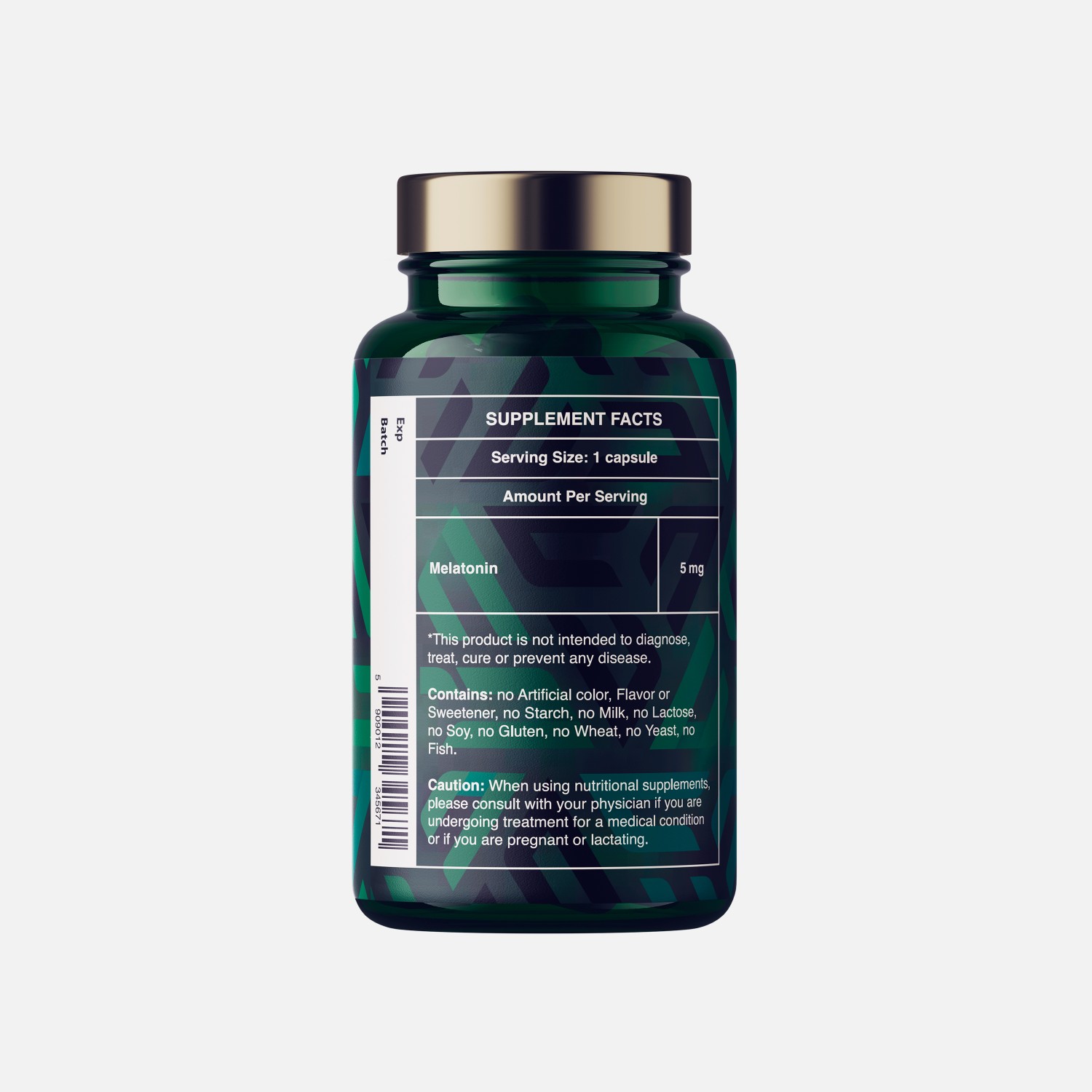



- Stock: In Stock
- Package: 5 mg / 60 capsules
Melatonin — circadian support for falling asleep faster and better sleep timing
Melatonin is a hormone naturally produced by the body when it is time to go to sleep, signaling the brain to switch to night mode, slowing down bodily processes and preparing for sleep. As a supplement, it acts not as a traditional sleep aid but as a signal to the body that it's time to sleep. It helps shift biorhythms, facilitate sleep, reduce the effects of jet lag, and normalize disrupted sleep patterns.
It's important to understand: melatonin itself is not a sedative, but rather helps establish the correct sleep window. Therefore, the maximum effect is typically achieved by those with disrupted sleep patterns (such as late bedtimes, jet lag, or shift work), rather than those with chronic insomnia.
Who can benefit from Melatonin?
- ✔ If you have trouble falling asleep, melatonin may shorten the time it takes to fall asleep—especially when the issue is linked to a disrupted schedule and external stimuli like artificial light or screens.
- ✔ If you’re a night owl and your sleep schedule keeps drifting later, melatonin can help gently shift your circadian rhythm when taken at the right time.
- ✔ If you suffer from jet lag, melatonin taken close to your target sleep time at your destination can reduce the severity of jet lag.
- ✔ If you’re older and your sleep has become lighter, some people experience a decrease in nighttime melatonin secretion with age.
- ✔ If you work shifts or travel frequently, melatonin can make transitions easier and speed up the return to a stable sleep pattern (when taken at the right time).
How to take Melatonin correctly?
Recommended dosage: 5 mg per day
Maximum dosage: Up to 10 mg per day (depending on individual tolerance)
When to take: 30 minutes to 1 hour before bedtime to promote restful sleep.
How long to take: For optimal results, it is recommended to use melatonin for 7–14 days, or as needed for managing occasional sleep disruptions.
How does Melatonin work?
Melatonin works primarily by regulating the circadian rhythm. It signals the body to prepare for sleep when darkness falls, enhancing the body's ability to fall asleep faster and enter deeper stages of sleep. The hormone increases during the evening, helping you wind down and achieve restorative sleep.
Melatonin also has antioxidant properties, helping to neutralize free radicals and protect cells from oxidative stress. It works particularly well in reducing inflammation and protecting tissues from damage caused by aging or environmental factors, which contributes to overall cellular health.
Additionally, melatonin plays a role in supporting the immune system by enhancing the production of immune cells and boosting the body's defenses against infections. It also has neuroprotective effects, supporting brain health by preventing oxidative damage and helping to maintain cognitive function.
For PEDs Users
Healthy sleep is one of the most important "anabolic" factors for athletes. Sleep enhances the recovery processes of the nervous system and muscle tissue, normalizes appetite regulation and insulin sensitivity, and improves stress management, thereby reducing the risk of overtraining and chronic inflammation. With consistent, high-quality sleep, performance typically returns more quickly between workouts, concentration and technique improve, and progress becomes more predictable even with high volumes of exercise.
A typical problem with AAS/stimulant use is disrupted sleep rhythm, shallow sleep, and CNS overstimulation. In these conditions, melatonin can be useful as a timing regulator: it can help you fall asleep faster and maintain a consistent sleep time, which improves recovery and tolerance to high-volume training.
However, it's important not to use melatonin as a "crucifix" for chronic insomnia: if sleep is maintained solely with supplements or dosages are constantly increasing, this is a reason to reconsider your stimulants, sleep hygiene, and exercise regimen.


